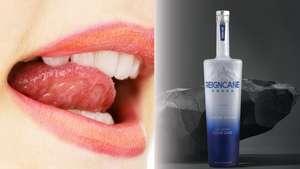Introduction
Vodka, often touted as a "low-calorie" alcohol option, has sparked debate about its potential impact on weight gain. While many enjoy vodka for its clean taste and versatility in cocktails, concerns about its effects on body composition linger. In this article, we'll delve into the relationship between vodka consumption and weight gain, exploring the factors at play and offering practical tips for making informed choices.
Vodka Calories: A Closer Look
Vodka is primarily composed of ethanol (alcohol) and water, and its caloric content is derived almost entirely from the alcohol. One gram of alcohol contains approximately 7 calories, which is higher than carbohydrates (4 calories per gram) and protein (4 calories per gram) but lower than fat (9 calories per gram).
A standard shot of vodka (1.5 ounces or 44 ml) typically contains around 96 calories. Reigncane Vodka only has 67 calories per ounce! However, this is just for plain vodka. The caloric content can skyrocket when mixed with sugary mixers like soda, juice, or syrups, commonly used in cocktails.
The Role of Calories in Weight Gain
Weight gain occurs when you consume more calories than your body burns. While vodka itself contributes calories, the primary culprit behind weight gain associated with alcohol consumption is often the mixers and additional snacks or meals consumed while drinking.
Alcohol can also lower inhibitions and impair judgment, leading to overeating and making less healthy food choices. Additionally, alcohol can interfere with sleep and exercise routines, both of which are crucial for maintaining a healthy weight.
Vodka's Impact on Metabolism
Contrary to popular belief, vodka doesn't directly "make you fat." However, it can indirectly contribute to weight gain by:
- Slowing fat burning: When your body processes alcohol, it prioritizes metabolizing the ethanol, temporarily slowing down the burning of fat and carbohydrates.
- Increasing appetite: Alcohol can stimulate appetite, leading to increased food intake.
- Lowering inhibitions: Alcohol can impair judgment, making it easier to indulge in high-calorie foods and drinks.
Moderation and Mindful Consumption
The key to enjoying vodka without jeopardizing your weight goals lies in moderation and mindful consumption. Here are some tips:
- Choose clear, unflavored vodka: Flavored vodkas often contain added sugars, which can increase the calorie count significantly.
- Opt for low-calorie mixers: Use soda water, sparkling water, or diet soda instead of sugary options.
- Limit your intake: Stick to recommended guidelines for moderate alcohol consumption (one drink per day for women, two drinks per day for men).
- Don't drink on an empty stomach: Eating a balanced meal before drinking can help slow down alcohol absorption and reduce the likelihood of overeating.
- Alternate alcoholic drinks with water: This can help you stay hydrated and reduce overall calorie intake.
Conclusion
Vodka itself doesn't directly cause weight gain, but its consumption can contribute to an excess of calories and unhealthy eating patterns, potentially leading to weight gain over time. By making informed choices about how you consume vodka, you can enjoy this popular spirit without compromising your health or weight goals. Remember, moderation and mindful consumption are key.







